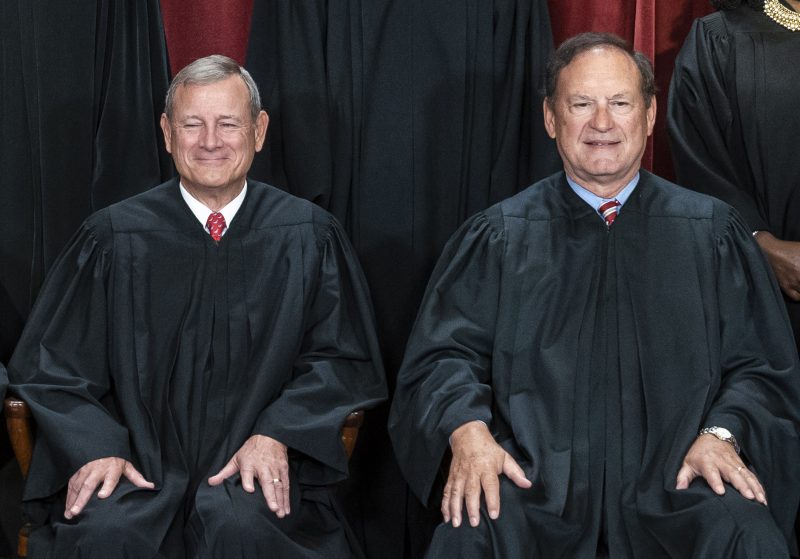
Democrats Urge Chief Justice Roberts to Tackle Ethics Concerns at Supreme Court
In the recent wave of scrutiny among the Democratic lawmakers in the United States, Chief Justice John Roberts of the Supreme Court finds himself at the center of controversy surrounding ethics and integrity within the institution. With growing concerns over perceived conflicts of interest and lack of transparency, Democrats are intensifying their pressure on Chief Justice Roberts to address these critical issues head-on.
The Democrats argue that the Supreme Court’s credibility is at stake when ethics violations or questionable behaviors are not appropriately addressed. Given the court’s role as the ultimate arbiter of law and justice in the country, maintaining the highest ethical standards is paramount to preserving public trust. Any hint of impropriety could cast doubt on the legitimacy of the court’s decisions and erode its standing in the eyes of the American people.
Chief Justice Roberts, known for his cautious and conservative approach to judicial matters, now faces the challenge of navigating these turbulent waters. While Roberts has a reputation for upholding the institutional integrity of the Supreme Court, some critics argue that he has been too passive in addressing ethical lapses within the court. Calls for increased transparency and accountability have grown louder in recent years, as high-profile cases and controversial decisions have raised questions about the court’s impartiality and independence.
One of the key issues at the heart of the Democrats’ concerns is the court’s handling of recusals. When a justice has a potential conflict of interest or bias in a case, recusal is the standard practice to ensure fairness and impartiality. However, critics argue that the current system lacks transparency and accountability, leaving room for justices to decide on their own whether or not to recuse themselves from cases where their personal interests may be at play.
Furthermore, the Democrats are pushing for stricter rules on financial disclosures by Supreme Court justices. The lack of comprehensive disclosure requirements has been criticized for fostering a culture of secrecy and potential conflicts of interest. By calling for more thorough and transparent reporting of justices’ financial interests, Democrats aim to shed light on any potential connections between judicial decisions and personal financial holdings.
Chief Justice Roberts faces a delicate balancing act as he navigates the demands for greater accountability while upholding the court’s traditions of independence and impartiality. As the head of the Supreme Court, Roberts must carefully consider the implications of any reforms or changes to the court’s ethical practices. While maintaining the court’s credibility and integrity is of utmost importance, Roberts must also ensure that any reforms do not compromise the independence and integrity of the judiciary.
In conclusion, the pressure on Chief Justice Roberts to address ethics at the Supreme Court reflects the broader concerns about the institution’s integrity and transparency. As the highest court in the land, the Supreme Court plays a critical role in upholding the rule of law and ensuring justice for all Americans. By addressing the Democrats’ calls for greater ethical scrutiny and accountability, Chief Justice Roberts has an opportunity to bolster public trust in the court and reaffirm its role as a beacon of justice and impartiality in the United States.
